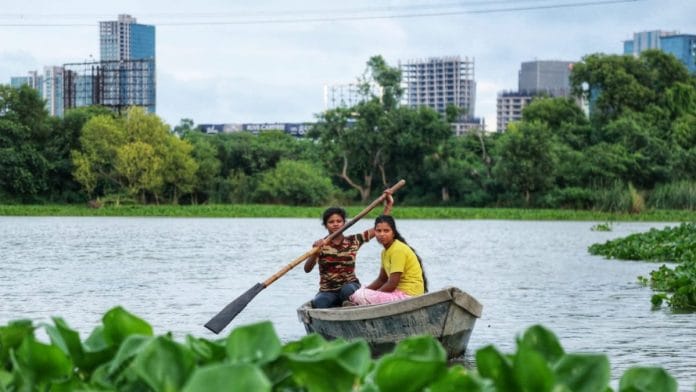New Delhi: In Delhi’s Chak Shila, a remote village that is only accessible by a boat, Covid-19 is not the biggest concern for the villagers.
Situated in the Yamuna Khadar area in North Delhi and home to almost 80 people, the villagers struggle for basic amenities like food and electricity. They do not wear masks or have hand sanitisers as they believe that none of them can actually contract Covid-19 considering how inaccessible the village is. There has not been a single Covid-positive case from here.
The main road from the village, in Mayur Vihar, is around 7 km from Chak Shila. One has to cross farm fields, small temporary settlements and a part of the Yamuna river to reach the village.
Most of the villagers, who have been residing here for the past 30 years, work on agricultural fields while some women used to work as domestic helps before the lockdown.
Budhni Devi, a 54-year-old farmer, recollects how nothing has changed in the village since she was a child. “We used to travel in boats when I was a child, and now my children also use the boat to go school,” she says.
Before the lockdown was announced in March, the children of the village used to go to school in Mayur Vihar and it took them nearly two hours to reach the school.
Once the lockdown was announced, the villagers faced a new set of problems. Most lost their jobs and many crops were ruined during these months. Children, who had to now access online classes, did not even have money to recharge their internet packs.
The village also does not have any electricity and they rely on small solar lights provided by local NGOs to use at night.
The Yamuna river is the only source of water for the village but for drinking water, they have to travel to Okhla in boats and fill huge cans.
The river that sustains them, also turns deadly during the monsoon. When it rains heavily, the village gets surrounded by water from three sides and the villagers have to move to the nearby Delhi-Noida highway to seek shelter.
They stay there in temporary tents and come back again once the water recedes. This has become an annual cycle for the villagers.
Almost all residents of the village have Voter ID cards, ration cards and Aadhaar cards, but this have not provided them access to any facilities.
For now, they demand that the government construct proper shelters for them so that they can at least stop their annual cycle of relocation.
ThePrint’s photojournalist Manisha Mondal visited Chak Shila for two consecutive days to capture life in this remote village, flanked by the Yamuna river.
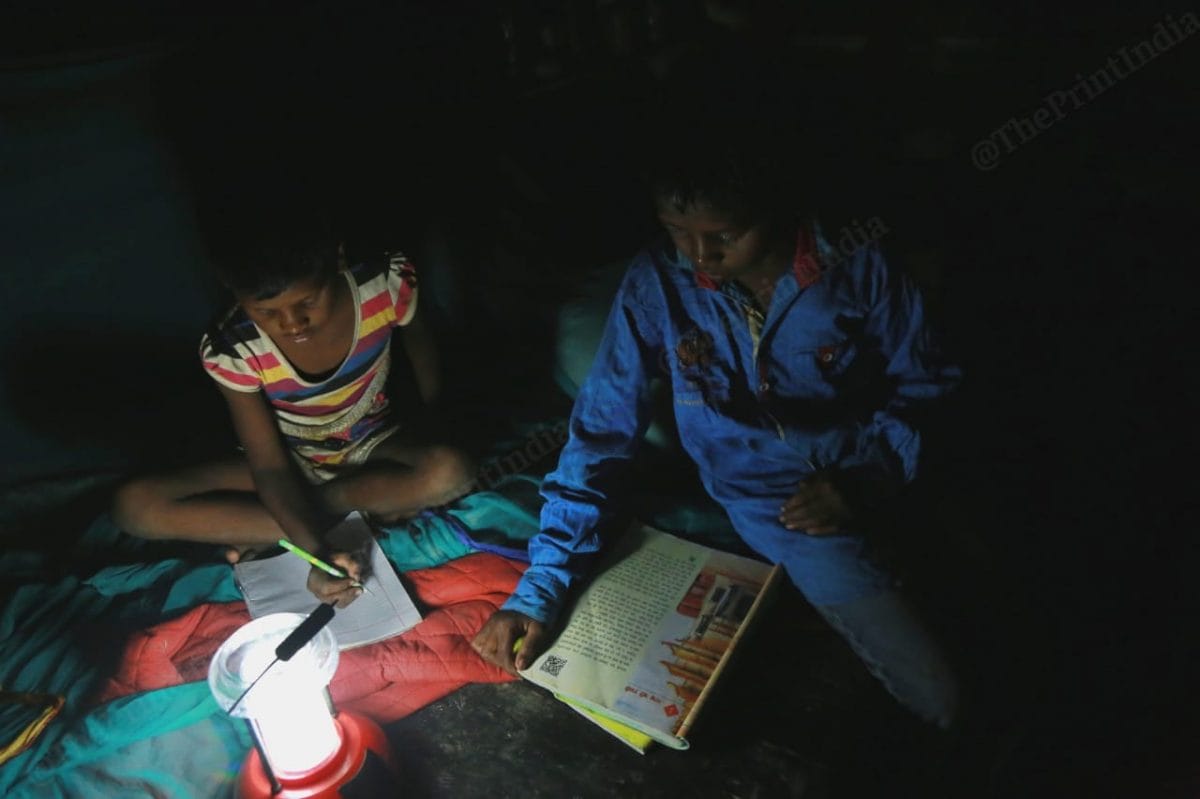
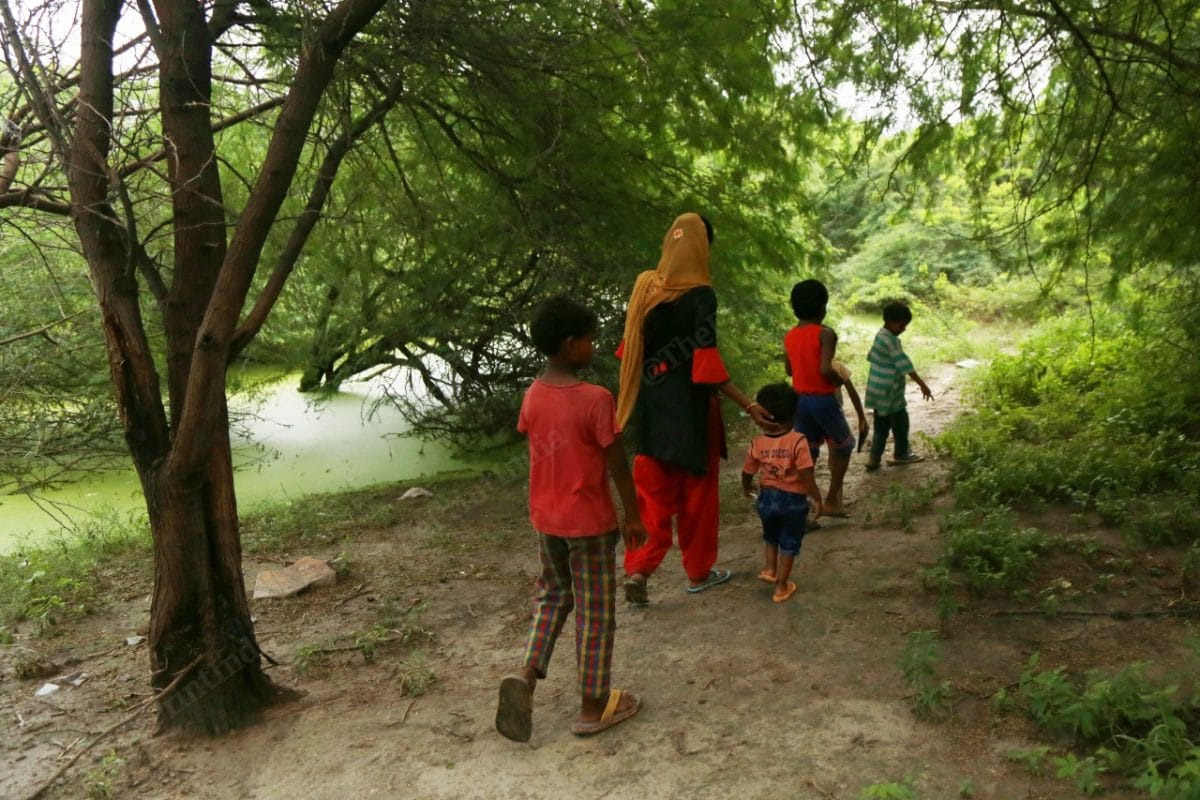
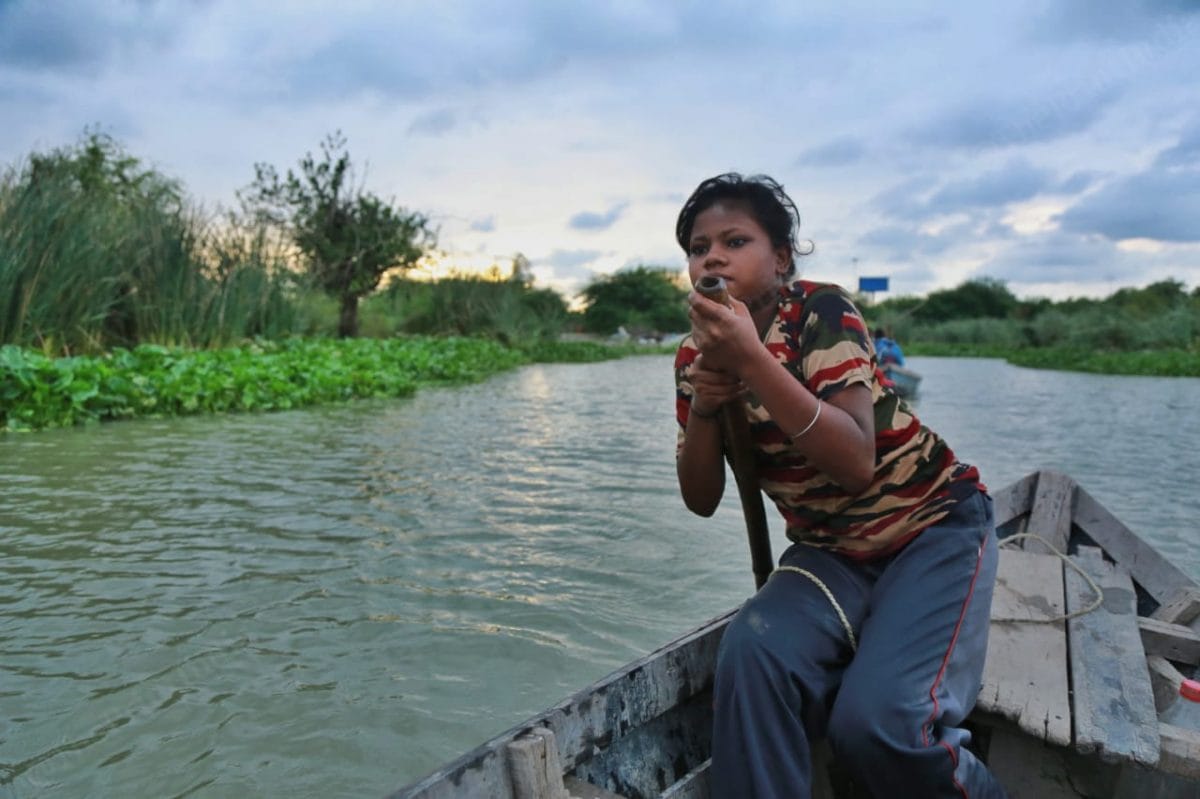
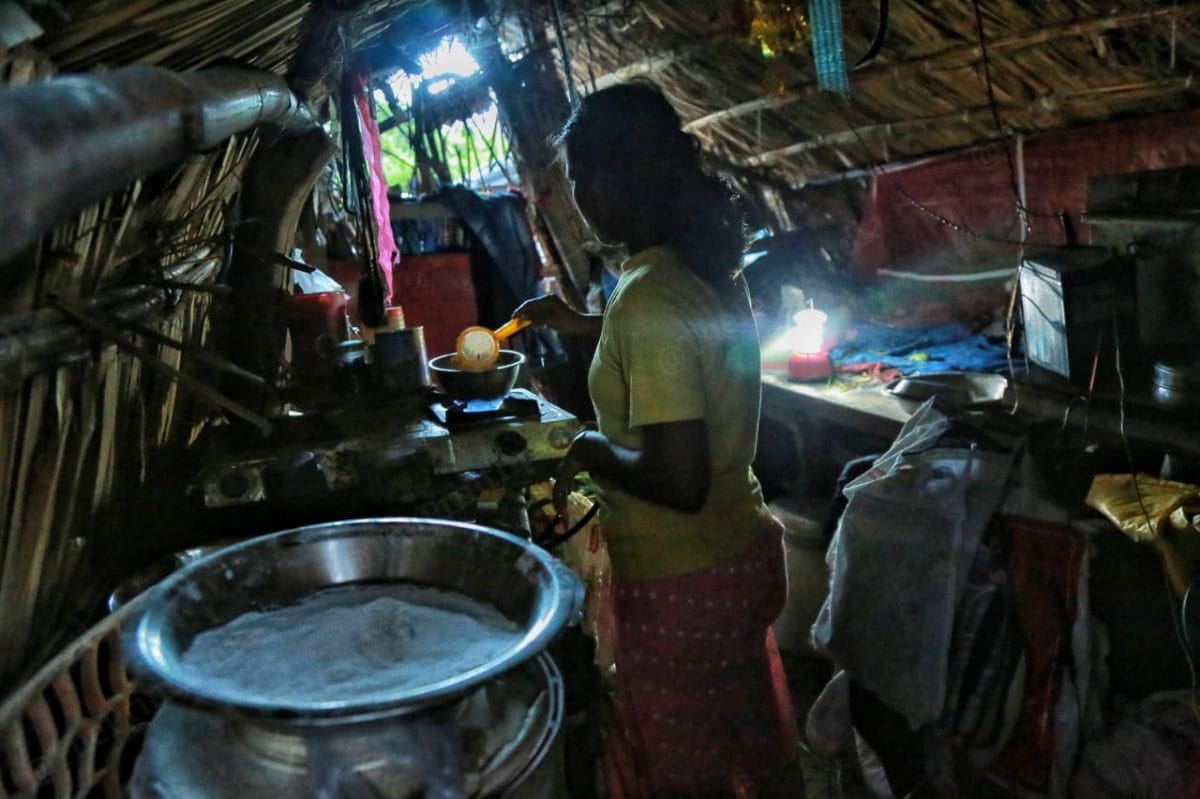
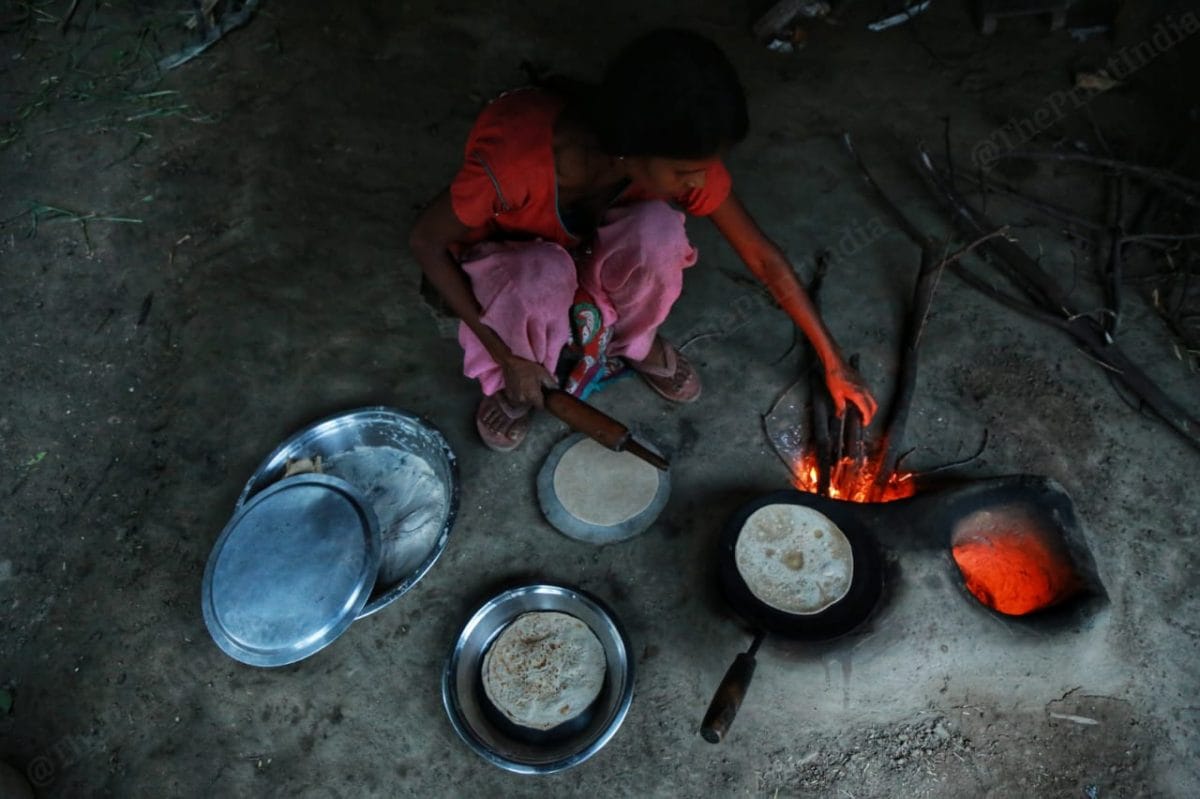
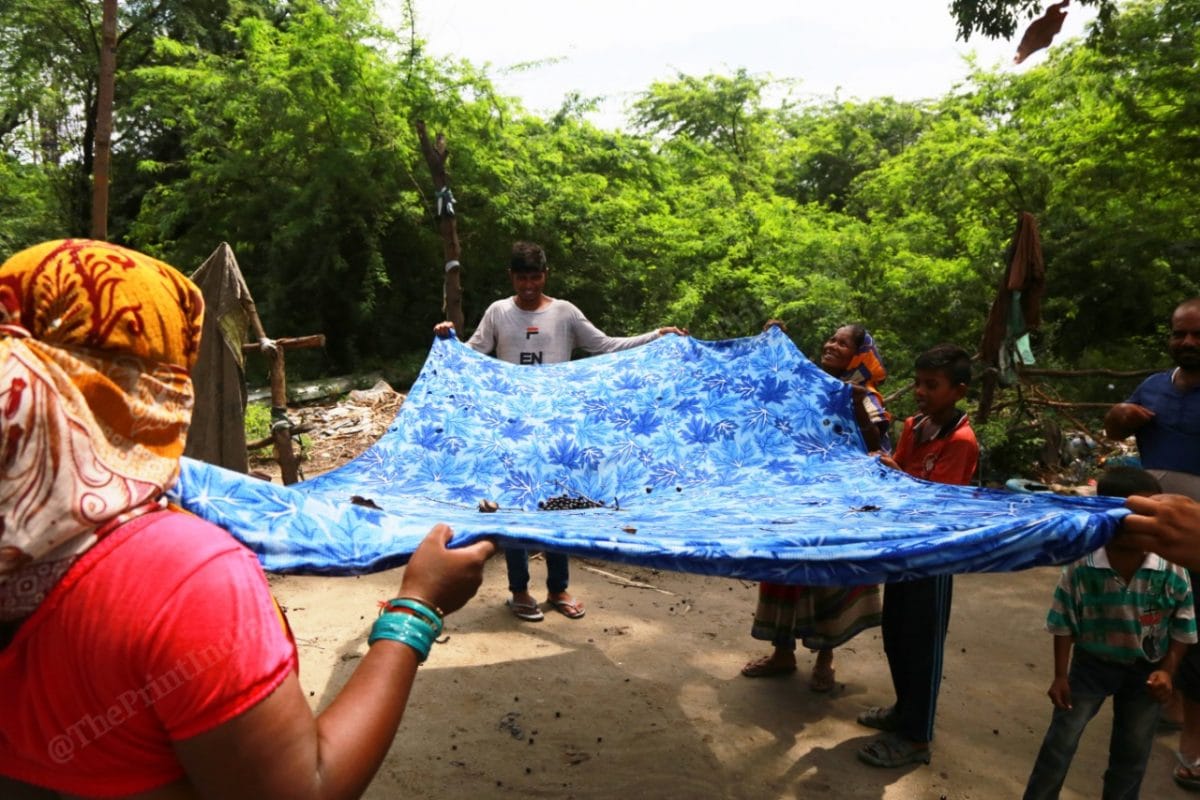
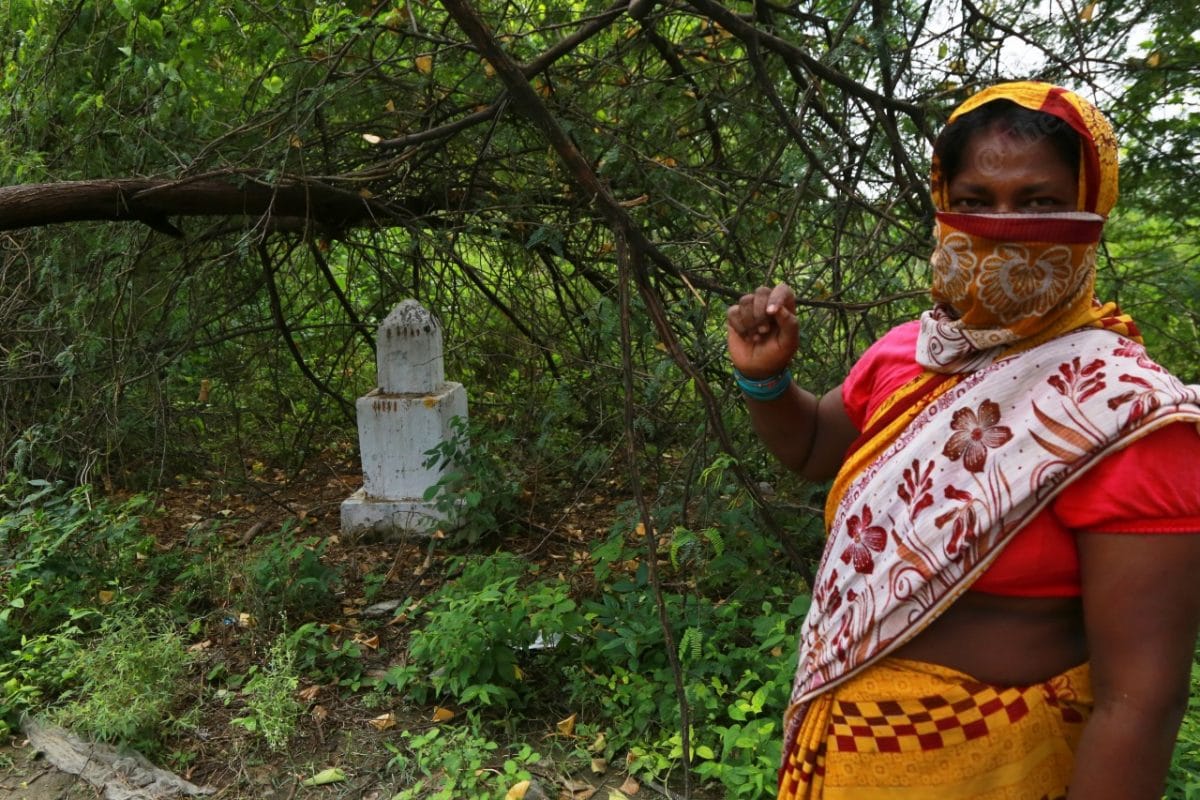
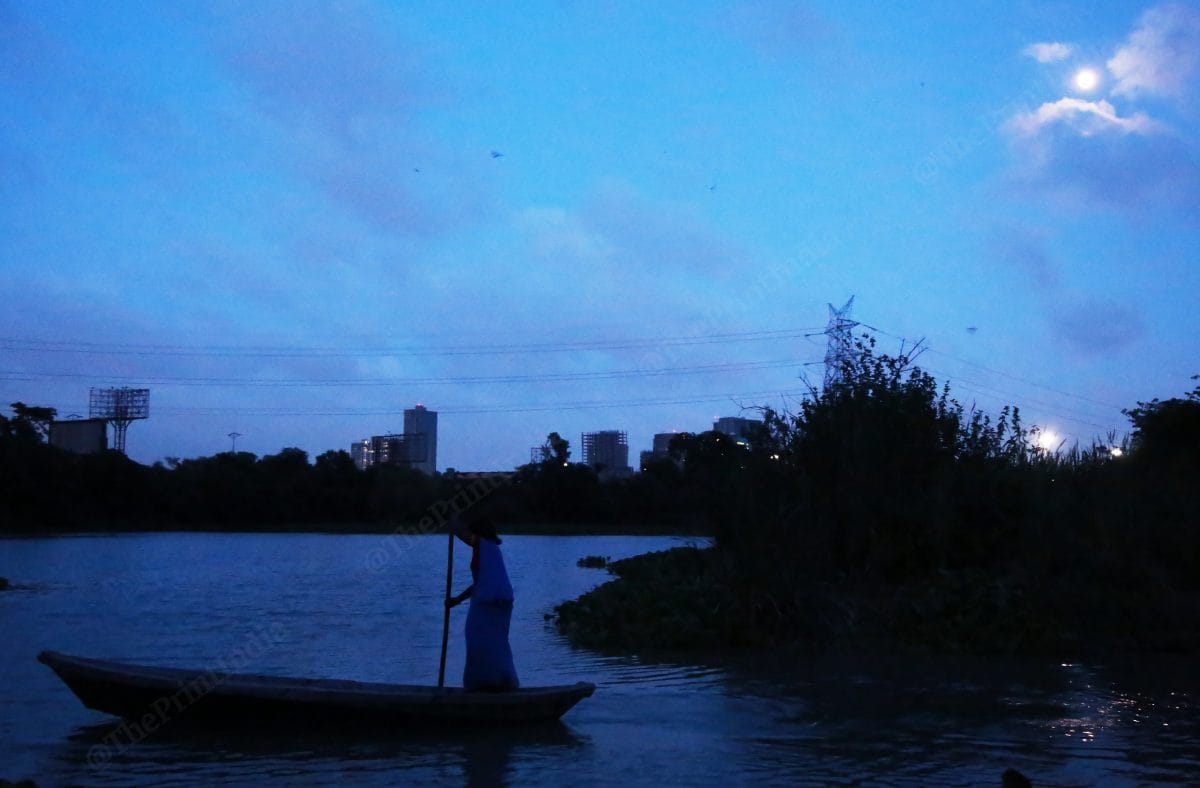
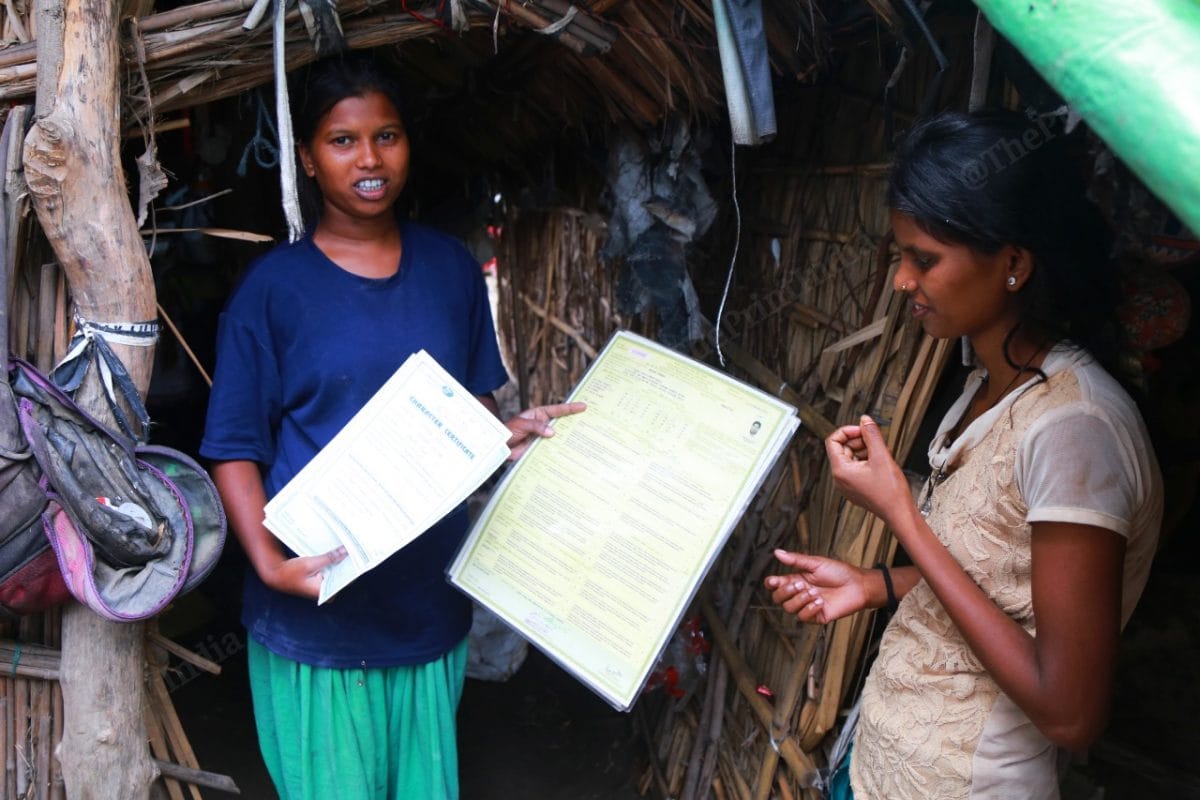
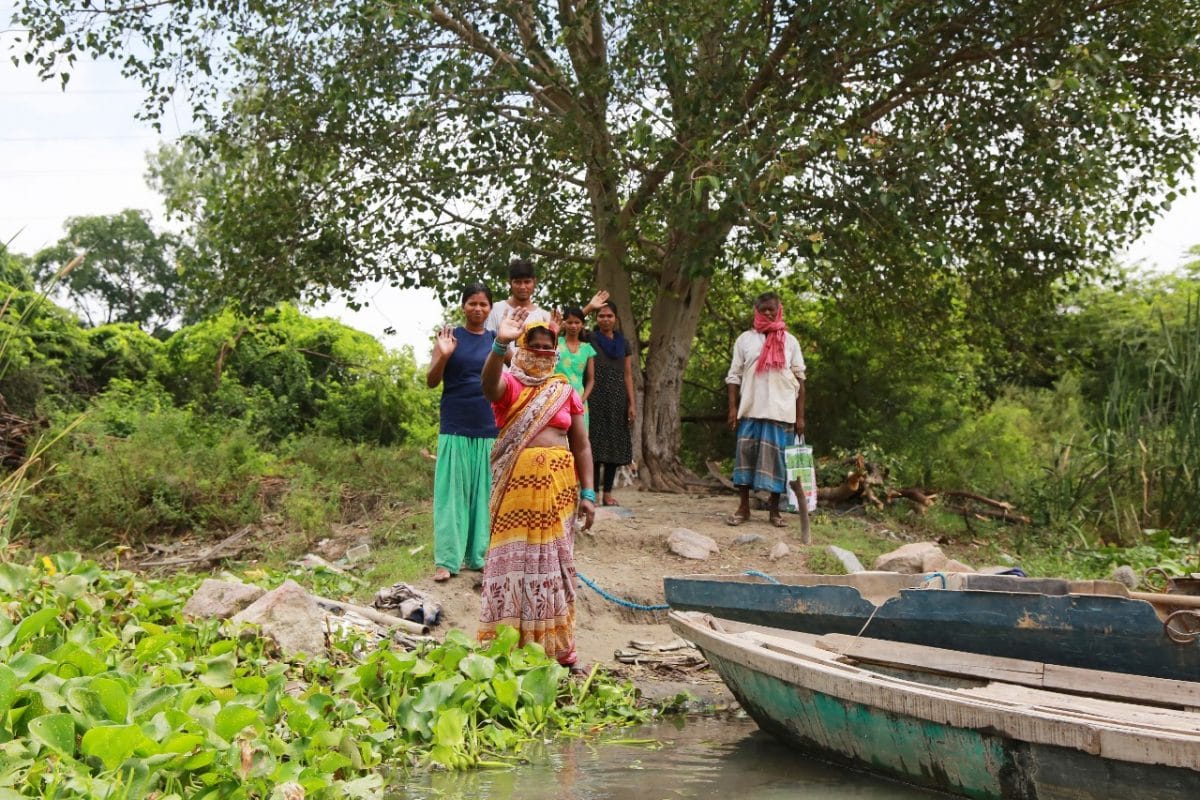
Also read: Afghan Sikhs look to India for a better life, but those already here are still struggling



